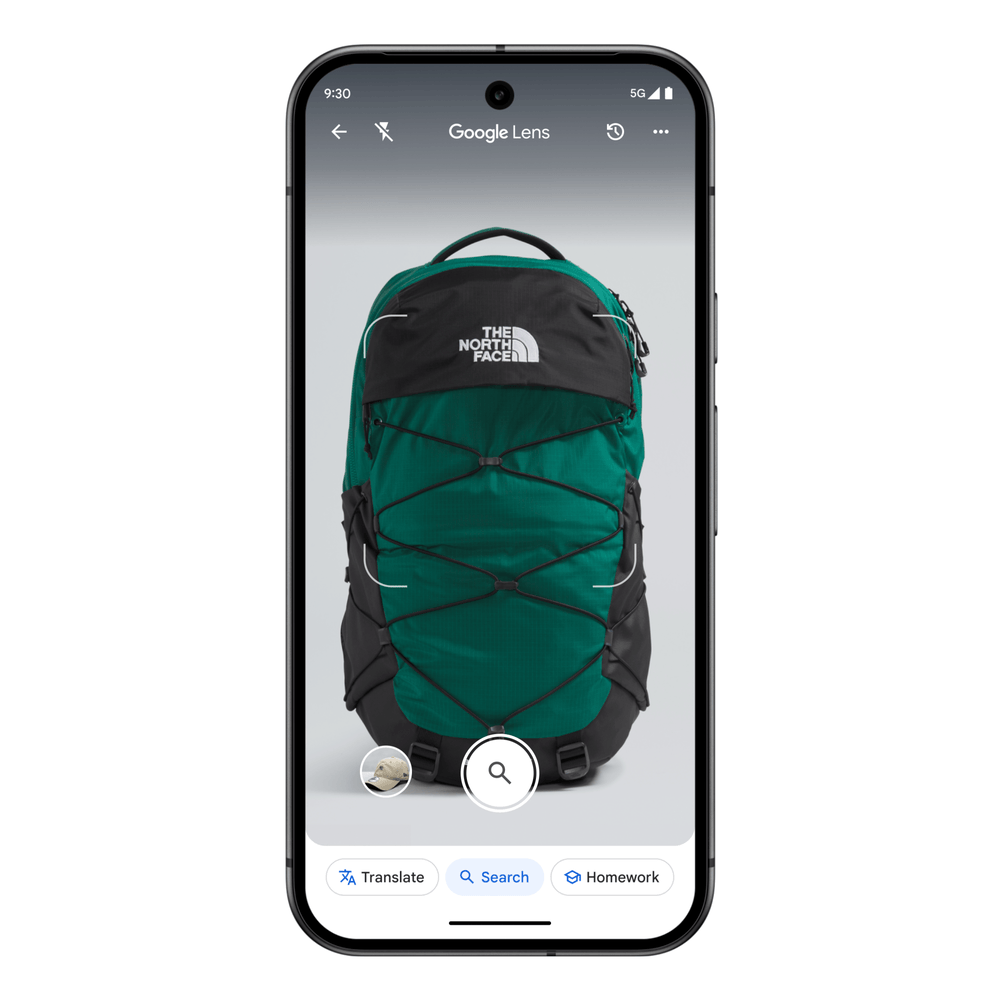October 31, 2024
At Google’s annual developer conference, I/O, they announced a host of new AI features coming to search. Some are launching immediately, impacting both organic and paid search result pages. Several new AI shopping features are also now available to the public. With all these changes rolling out in 2024, just ahead of the holiday season, no marketer can afford to overlook them.
Starting in the U.S. and initially rolling out for culinary-related queries, Google is now organising its search results pages with an AI-led approach rather than solely relying on its usual algorithms. According to Google: “You’ll see helpful results categorised under unique, AI-generated headlines, featuring a wide range of perspectives and content types.” They also suggest that “AI can help you explore and discover a wider range of results from the web, for those questions that may be open-ended or have no single right answer.” For example, the AI might prompt more specific queries as the user refines their research, moving from general ideas on places to go that evening, to searching for drinks, to specifically finding local cocktail bars.
This new AI-guided query style raises important questions, such as how AI-organised pages will impact traffic to individual websites, given that keeping users on Google’s results page may reduce clicks to the original sources. Additionally, there are concerns about potential biases in AI-organised results that may not exist in Google’s standard algorithm. Businesses will need to adapt to these changes, but effective strategies may only become clear after the new results pages have been live for some time. What we do know is that websites affected by the “Helpful Content Update” will not be linked within Google’s AI overviews. Finally, there’s also the question of how this will influence paid listings, which Google fortunately addressed in detail.

AI-selected ads now appear directly beneath the organic AI-generated answer in the AI Overview. From images shown by Google during I/O, AI ads resemble a typical shopping ad under a “Sponsored” label. Considering that AI Overviews will be the first element users see when searching on Google, this ad placement will be highly valuable for marketers, especially as other ad types are being pushed further down the page.

Shopping on Google, particularly via Google Lens, was a major focus at I/O. Lens is the search functionality that allows users to highlight any product within an image or video and find relevant shopping results based on what they have selected. Google’s AI will also serve as a research tool for shopping. For instance, if someone searches for or highlights a winter jacket, Google’s AI will provide a summary of the most important factors to consider before buying a coat suited to their local climate. The AI will then show products recommended by sources across the web, with explanations of why they’re a good match for the user’s needs. Users will also see categories offering an organised view of the types of jackets to consider, along with links to research further.

AI will also affect ads within Google Shopping. Google Shopping ads will display in the same format they currently do for keyword or query searches, maintaining consistency for users, who are already familiar with the format and more likely to engage. Advertisers will not need to make additional adjustments for their usual ads to appear in the new visual format. Those using Shopping, Performance Max, or AI-powered Search campaigns will be eligible to display ads in AI Overviews. However, as visual search becomes more prominent, it’s more important than ever to keep product feeds up-to-date, with relevant titles, product descriptions, and accurate details for Google Lens searches.
Google also detailed its plans for AI-powered ad placements. After rolling out AI for recipes and restaurants, Google is now prioritising Shopping ad placements for top holiday categories, testing AI shopping during the most critical retail quarter of the year. Google highlighted toys, electronics, and beauty products as key categories. While restaurants and bars need to keep their profiles updated year-round, businesses operating in these other categories should prepare for AI to play a significant role in their holiday strategies.
Explore our local search offerings
Mentioned in this article
Local SEO
Boost your visibility and connect with local customers through targeted SEO solutions.
Learn moreLocal Presence Management
Maintain accuracy and consistency across locations to improve your local presence.
Get startedTransparensee
Take control of your local listings with real-time updates and performance insights.
Explore platformExplore more local search news
Discover more DAC Insights
Explore all insightsStay forward
Subscribe to our monthly newsletter
